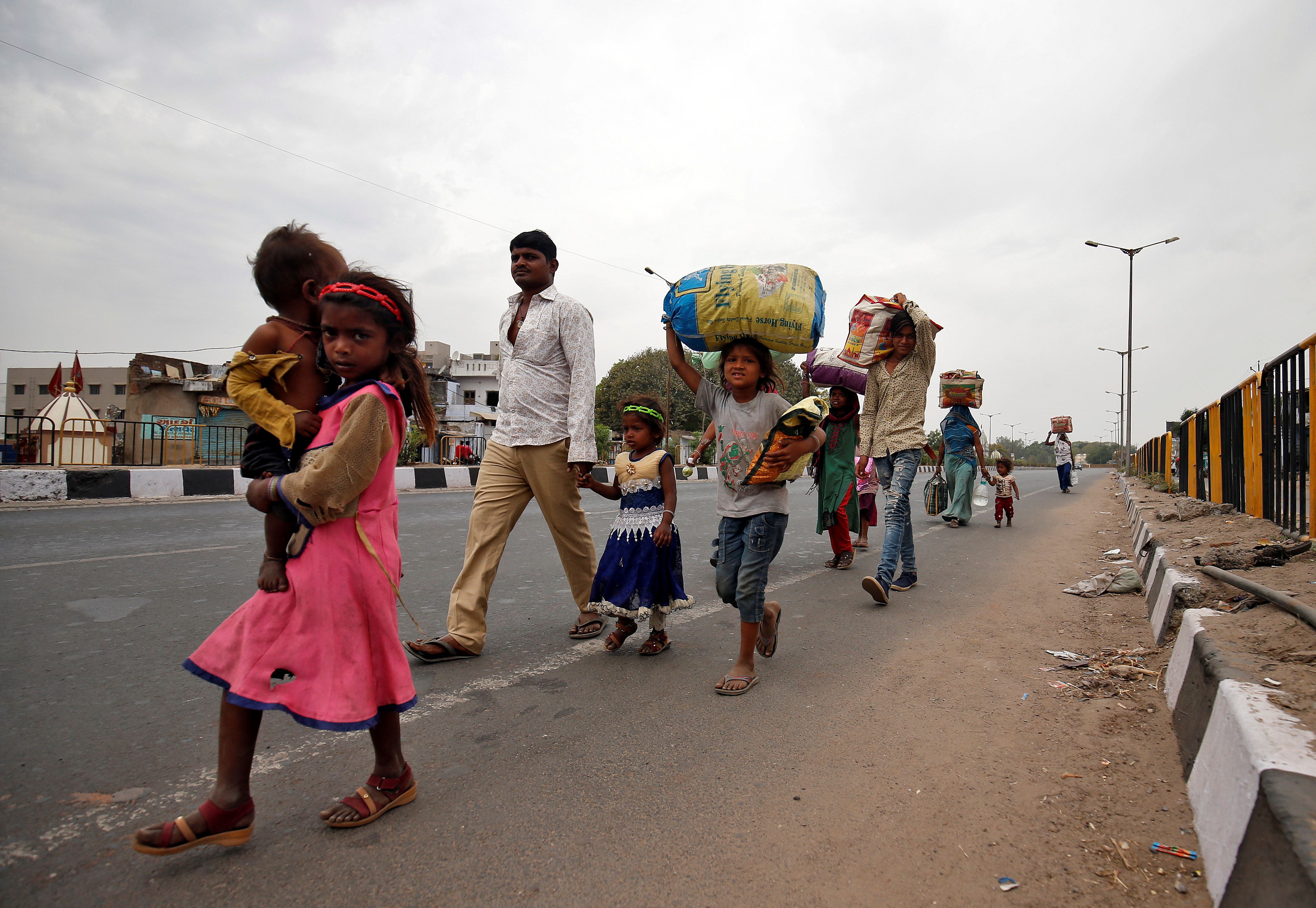Coronavirus Politics Daily: India locks down, hugs vs science in Mexico, Russia's low numbers
Read our roundup of COVID-19 themes and stories from around the globe.
The largest lockdown in human history: Nearly a fifth of humanity has now been ordered to stay home, the largest lockdown in human history – and that's in just one country. India has told its 1.3 billion people not to leave their houses unless absolutely necessary. The move, which shuts schools, non-essential businesses and most public transport for three weeks, comes after the Indian government was initially criticized for its lagging response to the coronavirus crisis. But health experts say 21 days is not enough time to prevent COVID-19 from sweeping one of the world's most densely populated countries. Plus, will people comply? In Telangan state, for example, an official said he'd issue "shoot on sight" orders if people flout lockdown rules. But social distancing and self-quarantines aren't conceivable for tens of millions of Indians who live in unsanitary slums where diseases already thrive.
Mexico's leader hugs his way to catastrophe: Andres Manuel Lopez Obrador, Mexico's populist president known as AMLO, has faced international criticism for his flippant approach to the coronavirus pandemic. In early March, AMLO, who's pushed back against the social distancing measures that other governments have implemented, had this to say: "You have to hug people. Nothing will happen." Even as Mexico's doctors reported an increase in patients with COVID-19-like symptoms, the Mexican leader has continued to hold rallies around the country, shaking hands and embracing supporters. AMLO has urged Mexicans to resist "fear and psychosis," saying that his country has ample medical resources to care for an influx of COVID-19 patients. But in the absence of adequate testing it's impossible to know how far the virus has spread, and medical experts warn that Mexico has just 2,000 ventilators for a population of more than 125 million. According to the OECD, Mexico has fewer intensive care beds and nurses per capita than the US, South Korea, and Italy.
Russia's referendum postponed: Russian President Vladimir Putin today postponed an April referendum on constitutional changes that would make it possible for him to stay in power until 2036. He made the announcement in a speech where he also ordered the entire population to take a week of paid leave in order to stop the spread of COVID-19 in the country. So far Russia has reported fewer than 500 infections and just one possibly coronavirus-related death, a curiously low mark for a European country of 140 million people. But yesterday, as Putin donned a meme-worthy yellow hazmat suit to visit COVID-19 patients in Moscow, the mayor cast doubt on the official figures, saying that the actual number of infections in the Russian capital is significantly greater than the official numbers suggest. Is a week off of work going to ensure that Russia has COVID-19 "under control" as Putin says – or does a grimmer reckoning await?
How to enforce a quarantine, Chechnya edition: Elsewhere in Russia, the Kremlin-backed dictator of Chechnya, Ramzan Kadyrov – known for track suits, gold plated pistols, pet tigers, an a nearly medieval penchant for sadism – has announced a very on-brand way to keep quarantined people from leaving their homes: if they do, kill them.
